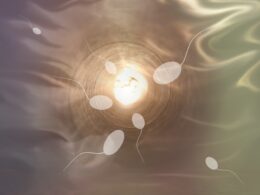Sperm production isn’t usually top of mind when you think about how to improve fertility. But it’s worth understanding the process, as it can make a big difference to your chances of getting pregnant.
The process starts in a series of tubes called seminiferous tubules within your testicles. The hormones LH and FSH trigger sperm development. Mature sperm cells move to the epididymis, where they remain until you ejaculate.
Ejaculation
Sperm production doesn’t make it to the top of many school curriculums, but it is very important for couples hoping to conceive. Understanding how long it takes for sperm to be produced can help men and women plan ahead and make choices that benefit fertility. For example, avoiding overly hot baths or showers can improve sperm health and reduce the time it takes for healthier sperm to appear in ejaculate. Also, reducing or eliminating certain medications can help keep sperm healthy.
A man’s body begins producing sperm cells during puberty, and it can produce millions of sperm cells each day. This process is called spermatogenesis, and it can take about 74 days to fully mature a sperm cell. Once a sperm cell is mature, it moves from the testicles to the epididymis, where it is stored until ejaculation.
Once a man is ready to ejaculate, the nerves in his reproductive system communicate with parts of his spinal cord to initiate the release. This releases a sticky liquid called semen from the penis, usually after an orgasm but not always.
The sperm that is ejaculated contains the genetic information that will match up with a woman’s egg. It is essential that sperm is released in order to fertilize an egg. It can take up to five days for a sperm cell to reach an egg, so the body produces millions of sperm cells each day in order to keep up with demand.
Testicle Development
Sperm cells (spermatids) develop in the testicles, specifically in vessels called the seminiferous tubules. This process is known as spermatogenesis and takes between 42 to 76 days to complete. The process starts when the brain releases luteinizing hormone (LH) and follicle-stimulating hormone (FSH). These hormones travel to the testicles, where they encourage Leydig cells to produce testosterone. The testosterone nourishes the spermatids, helping them to grow and mature. It also gives them the ability to move and swim.
Once spermatids have reached maturity, they move to the epididymis – long, tube-like ducts behind the testicles that store and carry sperm until they’re ejaculated. This is where sperm gains the ability to move, which helps it fertilize an egg and create a baby.
Once sperm leaves the testicles, it can only survive for three to five days outside the body. However, a man produces millions of sperm each day, so he’ll never run out of these tiny swimmers. In fact, a single milliliter of semen can contain anywhere from 20 to 300 million sperm cells! To learn more about the quality and quantity of your sperm, you can get a specialized test called a sperm count and sperm analysis. This test can determine if your sperm are motile, healthy and have the genetic potential to fertilize an egg.
Hormones
As you may have guessed, hormones play a pretty important role in both female and male fertility. During the process of conception, sperm need to travel through the female reproductive tract and meet an egg in order to fertilise it. To do this, sperm needs to survive for up to five days. This is why it’s so important for sperm to stay alive when they’re outside the body.
To do this, sperm cells need a little help from their hormones. During the first stage of sperm production, the hypothalamus in your brain releases luteinizing hormone and follicle-stimulating hormone (LH and FSH). These two hormones then travel to the testicles where they encourage the Leydig cells there to make testosterone. The LH and FSH also stimulate the seminiferous tubules, the ducts that lead to your penis. When sperm is produced in the testicles, it takes around 14 days for it to become fully matured in these ducts and gain motility. Then it gets stored in your Epididymis, a series of ducts behind the testicles where sperm is kept until it’s needed.
If you’re having trouble conceiving, you may need to boost your sperm count and motility by changing your diet and exercise regime or by seeing a doctor who can perform a test on your semen quality. Your doctor can assess your overall sperm count, test for STIs such as gonorrhoea, chlamydia and syphilis, and offer guidance on how to improve your sperm quality.
Food
Men produce billions of sperm cells each day, and they can have up to 30 million sperm in a single ml sample of semen. However, the quality of a man’s sperm may vary depending on lifestyle choices and diet. A healthy diet rich in fruits, vegetables, whole grains, and lean proteins can help improve sperm count and motility. It also can boost testosterone levels and improve the health of a man’s sperm membrane, which protects DNA from environmental factors. In addition, drinking water can help increase sperm count and improve the quality of sperm. It also can reduce oxidative stress and lower temperature around the testicles, which can improve sperm quality.
Despite a healthy diet, it can take months for changes to affect the quality of a man’s semen. In the meantime, it’s important to get enough sleep, exercise regularly, and limit stress. Additionally, it’s a good idea to avoid smoking or taking medications that may interfere with fertility.
Sperm cells typically live for five days, but their lifespan depends on the environment they are introduced to. If sperm are exposed to oxidative stress, high temperatures, or other chemicals, their life span can be cut short. Additionally, if a man has an untreated sexually transmitted infection like gonorrhoea, chlamydia, or syphilis, these can have an impact on sperm quality and prevent conception.





